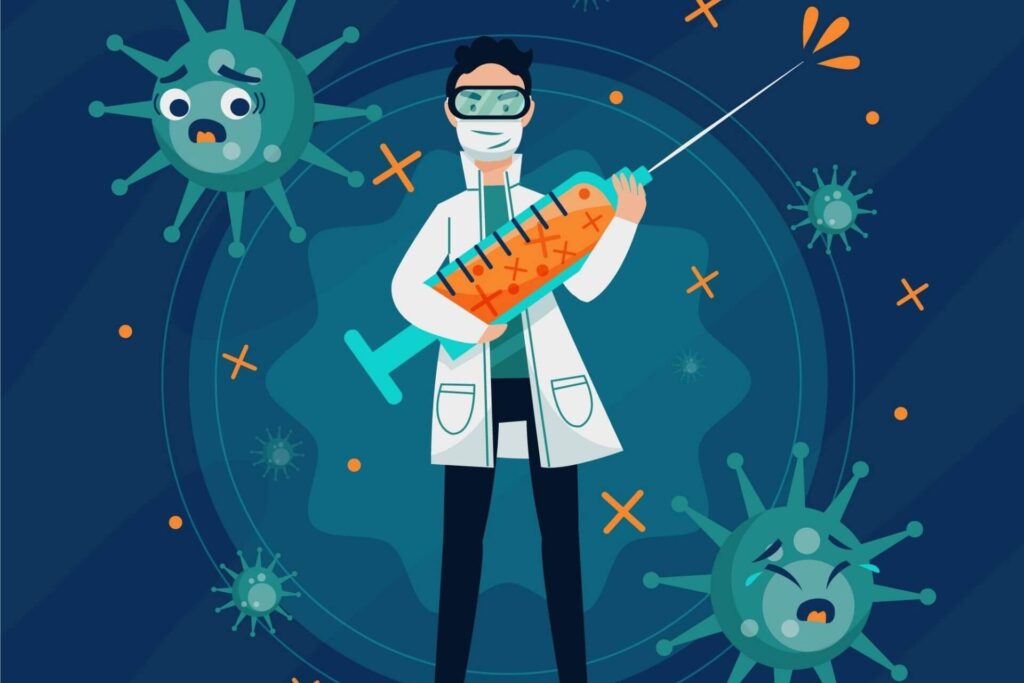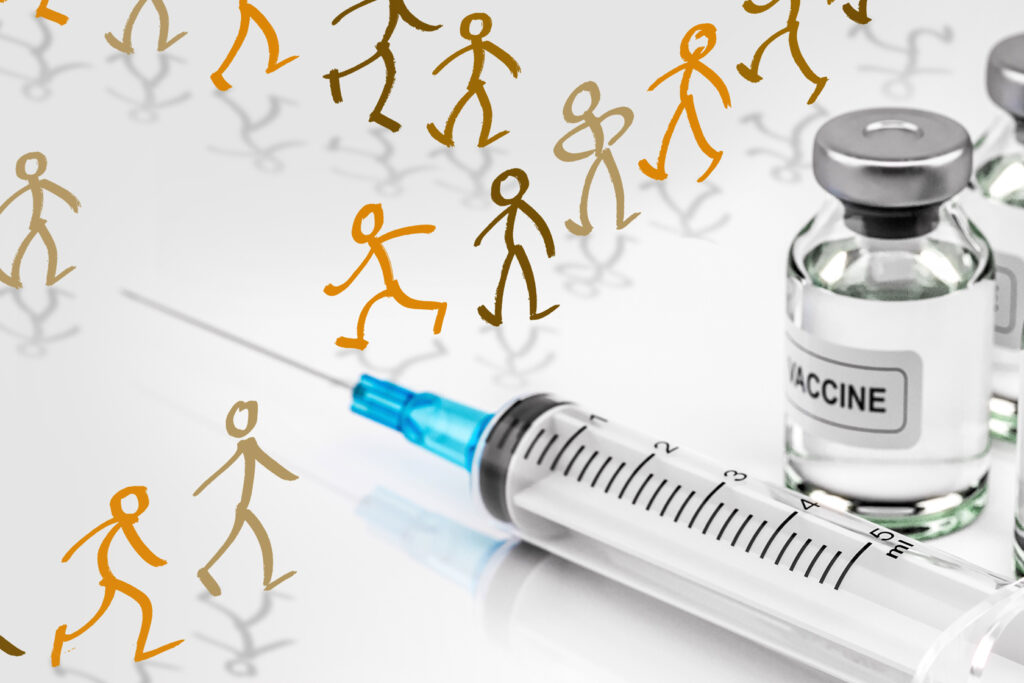The Significance of Vaccinations
Vaccination is a crucial measure in healthcare that helps protect the body against many dangerous diseases. Thanks to vaccinations, humanity has overcome numerous outbreaks and reduced mortality rates caused by illnesses. Below are some reasons highlighting the importance of vaccinations:

- Disease Prevention: Vaccinations aid the body in producing antibodies against bacteria and virus-causing diseases. Consequently, when exposed to a source of infection, the body is better equipped to combat it, preventing the spread of diseases within the community.
- Community Protection: Vaccination safeguards not only the individual but also the community. The risk of disease transmission decreases when a large portion of the population is vaccinated, particularly benefiting those who cannot receive vaccinations. Currently, COVID-19 vaccination serves as a prime example of community protection.
- Personal Health Assurance: Vaccination ensures our well-being, shielding us from various perilous diseases like polio, measles, mumps, and others. This results in a healthier and more active lifestyle.
- Reduced Mortality: Throughout history, vaccinations have significantly lowered mortality rates due to infectious diseases. These achievements have contributed substantially to societal development.
With these remarkable advantages, promoting complete and timely vaccinations is essential to safeguarding both individuals and communities from the risks of diseases.
Challenges and Benefits of Vaccinations
Vaccination is a pivotal measure for safeguarding human health. However, the implementation of vaccination faces various challenges and offers distinct benefits:
Challenges:
- Misinformation: Misinformation and rumors surrounding vaccinations can be hazardous by causing hesitancy or refusal to get vaccinated.
- Allergic Reactions: Some individuals may experience allergic reactions following vaccination, posing risks to their health.
- Regulation and Distribution Difficulties: In certain areas, vaccination can be challenging due to healthcare infrastructure issues, especially in rural and remote regions.
Benefits:
- Disease Prevention: Vaccination prevents the spread of infectious diseases, ensuring that outbreaks do not escalate and spread in the community.
- Personal and Community Protection: Vaccination not only safeguards personal health but also shields the entire community, particularly vulnerable individuals who cannot be vaccinated.
- Contribution to Societal Development: The reduction in mortality and disease incidence achieved through vaccination significantly contributes to sustainable societal development, allowing people to live in a healthier and safer environment.

The Importance of Childhood Vaccination
Childhood vaccination is a cornerstone of public health efforts worldwide. It plays a critical role in preventing the spread of infectious diseases and protecting the health and well-being of children. Here are some reasons highlighting the significance of childhood vaccination:
- Disease Eradication: Childhood vaccinations have been instrumental in eradicating or significantly reducing the prevalence of deadly diseases such as smallpox and polio. These successes demonstrate the power of vaccines in saving lives and eliminating diseases from communities.
- Herd Immunity: Vaccinating a significant portion of the population creates herd immunity, which indirectly safeguards those who cannot be vaccinated, such as infants or individuals with weakened immune systems. This helps prevent outbreaks and minimizes disease transmission.
- Preventing Complications: Many vaccine-preventable diseases can lead to severe complications, such as pneumonia, brain damage, or even death. Childhood vaccinations significantly reduce the risk of such complications, ensuring a healthier future for children.
- Long-term Health: Childhood vaccinations provide protection throughout a person’s life, reducing the likelihood of contracting and transmitting diseases even in adulthood. This leads to healthier populations and lower healthcare costs.
- Global Health Impact: Childhood vaccination contributes to global health efforts by decreasing the burden of disease worldwide. It not only saves lives but also supports economic growth and development in communities.
COVID-19 Vaccination: A Vital Step towards Recovery
The emergence of the COVID-19 pandemic highlighted the urgent need for effective vaccines to combat infectious diseases. COVID-19 vaccination has become a crucial tool in controlling the spread of the virus and facilitating a return to normalcy. Here are some reasons emphasizing the importance of COVID-19 vaccination:
- Epidemic Control: COVID-19 vaccines play a pivotal role in controlling the spread of the virus. Achieving high vaccination coverage helps reduce the number of cases, hospitalizations, and deaths, ultimately bringing an end to the pandemic.
- Protection of Vulnerable Populations: COVID-19 poses a higher risk of severe illness and complications for older adults and individuals with underlying health conditions. Vaccination offers them protection and reduces the burden on healthcare systems.
- Economic Recovery: Widespread COVID-19 vaccination is essential for economic recovery. It enables the safe reopening of businesses, schools, and travel, boosting economic activity and alleviating the economic impacts of the pandemic.
- Global Solidarity: As COVID-19 knows no borders, global vaccination efforts are crucial to prevent the emergence of new variants and to ensure equitable access to vaccines for all countries, regardless of their economic status.
- Public Health Confidence: COVID-19 vaccination demonstrates the power of science and collaboration in addressing public health crises. It helps restore public confidence and encourages adherence to preventive measures.

In conclusion, vaccinations come with challenges and benefits. To ensure vaccination effectiveness, accurate information dissemination and building community trust are crucial, along with ensuring equitable and efficient distribution of vaccination programs.
Childhood vaccination is an essential tool in safeguarding the health of children and communities. By ensuring that children receive the recommended vaccines, we contribute to a safer and healthier world.